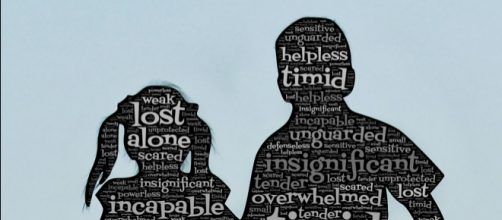If all ages are not given the same respect, some ages will suffer. I think the two ends of a life are the most vulnerable to a lack of respect. In this article, I will share the key elements of the Discipline I call Triadic Philosophy. Nothing is more respectful than what enables someone of any age to sense that they are important in and of themselves. Treat people as helpless and watch it spread. Enable people to understand that they are in control. Enable self-respect.
I see instances of discipline that make me want to intervene. It requires restraint when one hears someone characterized as this or that.
It requires careful thought if one sees signs of violence. It is bothersome to imagine that an ill-treated child would be brought to a professional for diagnosis when it is the parent who most needs help and self-respect.
A sort of discipline
Sometimes I think life is a rolling karma display. Triadic Philosophy is about nipping karma in the bud. Here is the bare bones of Triadic Philosophy discipline for persons of any age. You walk alone or, if appropriate or necessary, with someone you trust. You start with a prayer. Say it silently to yourself. It should center on reciprocal forgiveness.
Stage 1: a prayer
Teaching this to a child, I would suggest asking forgiveness for wrongs "we" have done, adding "as we forgive those who do wrong." Explaining this, I would say we all do things that upset people and we can all be forgiven for wrongs we have done.
This prayer can be very freeing. Self-respect is admitting you can make mistakes, even hurt others. Self-respect is also understanding that to move forward you need some assurance that you are still loved and affirmed.
Stage 2
The second stage of the discipline is a conversation with yourself. Children can grasp this. The exercise is as follows. Whatever is on the mind of the person is a sign, word, or idea. Whatever it is, ask silently if it is tolerant, then if it is helpful, then if it is democratic.
These values can be expressed in other terms: Does it treat people equally? Does it teach you something? Does it help you do something? Does it respect you? Does it see you as good as everyone else?
Next, create a sort of mantra of the following words, all of them if it seems right:
"Beauty is truth, truth is beauty."
"Freedom. Love. Justice."
"Non-idolatry."
Repeat these or other such things silently as a sort of conclusion. Then continue in silence.
Inner time
There may follow an inner dialogue, musing, or pondering. A sense of guidance may be felt.
Groups Ask Congress for Young Immigrant Fix by Year's End https://t.co/v9hSv4Gig5
— Stephen C. Rose (@stephencrose) December 1, 2017
The two parts of this can take ten minutes or more. It can be a daily regimen. It treats everyone of any age precisely the same.


